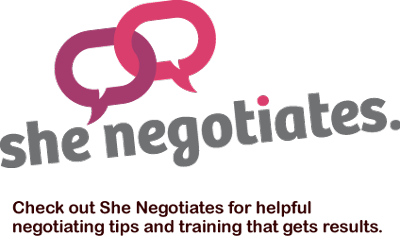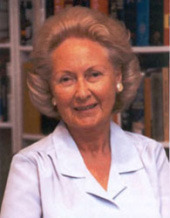Gloria Feldt's Blog, page 16
August 8, 2012
She’s Doing It: Women’s Golf Evangelist Joan Cavanaugh
I get the power of golf. That’s why I took it as my physical education in college. And I garnered the only “C” in my life. I’d have failed had it not been for the written final exam that brought my dismal playing score up from the tank.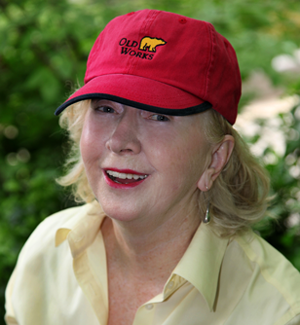
So I chuckled when I received this e-mail from Joan Cavanaugh, former Dominican nun, creator of the Metropolitan Museum of Art’s recorded tours, teacher, entrepreneur, and the founder of the Boardroom Golf Institute:
“I listened to you on the Takeaway and thought this is a woman who should and would enjoy the benefits of the golf game…I would really like you to join me next Thursday at the business golf workshop. Golf is a great strategy for making new business relationships with men as well as women. It will be a fun packed day and you will go away educated about the game, elevate and empowered to play the game.”
Oh, if she only knew, I thought. I politely declined and thought that would be that.
Instead, she wrote back, and I discovered one of the most fascinating women around.
Her second epistle began cheerily, “I just opened a fortune cookie at lunch and I think the message has always been my mantra. ‘Enthusiasm is the greatest asset in the world. It beats money, power, and influence.’”
Her enthusiasm infuses everything she says.
She’d ordered No Excuses because she connected its messages with her motivation to help women grasp the importance of “getting out on the playing field where they will be visible to gain status and power.”
Golf, she declares over and over, is not an end in itself but a means to an end.
“The hub of American business is the golf course. It is not a game for women who like golf, it’s a game they should and could play to take them to parity. It offers limitless opportunities to rise to the top.
Granted it’s not the only way but I find women are intimidated by this simple game by the very excuses you speak of. They are afraid to be front and center with men.”
Joan grew up on the south side of Chicago in an Irish Catholic family with three brothers, which forced her to learn how to hold her ground early in life. When I asked when she knew she had the “power to,” she launched into describing her “skinny 6-year-old” self.
Her father nurtured her love of reading by taking her to the public library each week. She especially loved biographies and was inspired by reading about people like Susan B. Anthony, who accomplished great things. So she created a lending library in the family’s basement, charging children a penny a day to borrow a book.
A take-action kind of natural leader, she noticed stars in windows of some homes at the end of World War II. When she learned this represented families that had someone fighting in the war, she organized neighborhood children to ring doorbells of homes with stars and say how happy they were the soldiers would be coming home.
Moved by the gesture, people gave her money. This scandalized her mother, but reinforced for Joan the value of reaching out and making community.
Going straight from high school to thirteen years as a Dominican nun, she was propelled always by her joyous sense of community and responsibility.
Then she left the order and moved to New York.
“I was married young and naive at 30 and it only lasted three years because of the infidelity of my then husband. I spent thirteen years as a potential candidate for “Sex in the City” although the producers were unaware of my existence. I started a successful publishing company, met my soul mate (an avid golfer) and helped raise his three teenagers.”
That’s when she discovered the benefits of golf to herself as a business owner and soon became passionate about promoting the game to other women to help them rise to the top “where they should be.”
Women, Joan believes, have the very skills that make them excel at what golf is really about.
Ten percent of its value has to do with skill. The rest has to do with building relationships, communicating in a key social environment where you see personalities and learn to trust other players. You bond in a way that doesn’t happen in any other format in the business world. “You’re branding yourself, networking, decision making.”
Women, she says, must understand that anyone looking to promote someone is looking for more than skills; he or she is looking for what you can see on the golf course–strategy, humor, personality. And the proximity to powerful people in a golf game setting makes it more likely that you will be the one chosen.
Quoting Plato, Joan says, “You can discover more about a person in an hour of play than a year of conversation. And I say to women, your next up is not who you work with but who you play with.”
Now a widow with five grandchildren, Joan presents golf workshops to give women her E-Z Business Golf method. She’s writing a book entitled The Game of Business, Ascent to the Boardroom to get the message to more women.
“When I see the research that says women are still not in the inner circle, I say the inner circle is available to you. Now let me tell you why it’s so important for you to be there, and how playing golf can help. Women offer excuses. It’s not as difficult to play the game as you think it is. Get in the game and then change the game, move up the ladder. Go where things are and make them yours.”
August 1, 2012
She’s Doing It With Money: Tamia Gallego and Women in the Black
Did you know? Today, August 1, is National Girlfriends Day .
Google it. You can find suggestions for sharing tips with your girlfriends about their personal health, 10 Ways to Celebrate — fun things like going to a spa and niceties like writing a personal thank you note — and even girlfriend humor about why it’s better to be a female (“We got off the Titanic first.” “We don’t look like a frog in a blender when we dance.”).
But if you really want to do something of lasting value for your girlfriends, you might want to turn them onto Tamia Gallego’s blog. It’s called Women In The Black and it’s a self-described “community where like minded women discuss personal finance, saving, investing and building wealth.”
Come to think about it, do it for yourself too!
A banker with a CPA by day and an advocate for women’s financial literacy by night, Tamia lives in Sydney, Australia. Her information and advice are valuable for all of us girlfriends around the globe. In addition to her website, she offers a free daily newsletter with practical tips on personal finance and encouragement for the women (and she says also some men) who subscribe.
Tamia hopes eventually to secure corporate sponsors for her work, but for now she and her husband are supporting the “passion project” as she calls it.
Tamia’s posts are especially aimed at younger women in order to help them get on the best financial foot for life. She pointed out to me in an e-mail that because women typically earn less than men, we also end up with less in our retirement funds. Ouch—I can vouch for that.
I recommend you return to Women in the Black periodically for useful posts on personal finance ranging from advice about buying a business to tips for maximizing the money that is available to us but that we sometimes fail to collect.
I asked if I could repost her piece called “Know Your Worth” to share with all my, um, girlfriends, and she graciously agreed.
Here’s the post in full, with a big thanks to Tamia for kind words about No Excuses
Know Your Worth
I used to work as an Account Manager for a major bank, and was one of three female managers in a team of fifteen managers across Australia. Banking is typically a male dominated industry and I considered myself lucky to be given the promotion to Account Manager from an auditing role.
I clearly recall when I accepted the job offer of Account Manager over the phone; I displayed excitement when my manager revealed my salary. It was about $15,000 pay increase so I was delighted. However his comment was that I was not very good at negotiating. It didn’t dawn on me at the time what he meant by this.
Some 18 months Iater when my department was restructured, I inadvertently saw my colleague sitting next to me’s pay slip. The colleague was male and was performing the same role. I would even suggest his role was not as challenging as mine, as a part of my role included risk management. His pay slip showed he was earning $20,000 more.
The male colleague had secured his job coming from outside of the organisation with limited product specific experience and had talked himself into the high paying job. That was when the reality hit me about the gender inequality. Needless to say I felt anger and frustration.
In hindsight, I was happy to be offered a promotion and advance to a management position, but I was also frustrated that I didn’t negotiate enough. This was a good example that men are better at selling themselves.
I read an article, that men will apply for a job even if they meet only 6 out of 10 job specifications listed, whereas women will convince themselves that they haven’t got all the skill sets required to go for the job, and end up not applying for it.
Recently I attended a seminar, Women In Leadership, hosted by The American Chamber of Commerce. One of the speakers Andrew Stevens, Managing Director of IBM, had said that his organisation is looking to tweak the job advertisements so that women don’t overlook themselves from the selection process.
Traditionally men are the hunters and women are the gatherers, which means that men are raised to make money not only for themselves but to support their wife and their children. Men have been in the money game from the very start, so they are at ease with thinking of themselves as being worth a certain salary.
Women have only started earning money in male dominated roles, in the last 40-50 years, and really for the most part the last 20. This is why we don’t think of ourselves as being worth a certain amount; an amount of our true worth.
It’s important to note that men and women have different attitudes about the value of our skills. Men believe they’re worth a certain salary, and that it’s up to them to get that amount out of their boss.
Women think we’re worth what people are willing to pay therefore we let others determine our worth. One of the women I admire and respect is Gloria Feldt, author of No Excuses: 9 Ways Women Can Change How We Think About Power.
For someone of Gloria, who has admitted that she undersold herself and didn’t negotiate for a better salary. She advises that women should care a lot more about what we’re paid, negotiate more aggressively for salaries, and plan better for the later stage of life when our income will be far less than when we’re in our prime.
How much are you worth? Make sure you ask for it!
She’s Doing It With Money: Tamia Gallegos and Women in the Black
Did you know? Today, August 1, is National Girlfriends Day .
Google it. You can find suggestions for sharing tips with your girlfriends about their personal health, 10 Ways to Celebrate — fun things like going to a spa and niceties like writing a personal thank you note — and even girlfriend humor about why it’s better to be a female (“We got off the Titanic first.” “We don’t look like a frog in a blender when we dance.”).
But if you really want to do something of lasting value for your girlfriends, you might want to turn them onto Tamia Gallego’s blog. It’s called Women In The Black and it’s a self-described “community where like minded women discuss personal finance, saving, investing and building wealth.”
Come to think about it, do it for yourself too!
A banker with a CPA by day and an advocate for women’s financial literacy by night, Tamia lives in Sydney, Australia. Her information and advice are valuable for all of us girlfriends around the globe. In addition to her website, she offers a free daily newsletter with practical tips on personal finance and encouragement for the women (and she says also some men) who subscribe.
Tamia hopes eventually to secure corporate sponsors for her work, but for now she and her husband are supporting the “passion project” as she calls it.
Tamia’s posts are especially aimed at younger women in order to help them get on the best financial foot for life. She pointed out to me in an e-mail that because women typically earn less than men, we also end up with less in our retirement funds. Ouch—I can vouch for that.
I recommend you return to Women in the Black periodically for useful posts on personal finance ranging from advice about buying a business to tips for maximizing the money that is available to us but that we sometimes fail to collect.
I asked if I could repost her piece called “Know Your Worth” to share with all my, um, girlfriends, and she graciously agreed.
Here’s the post in full, with a big thanks to Tamia for kind words about No Excuses
Know Your Worth
I used to work as an Account Manager for a major bank, and was one of three female managers in a team of fifteen managers across Australia. Banking is typically a male dominated industry and I considered myself lucky to be given the promotion to Account Manager from an auditing role.
I clearly recall when I accepted the job offer of Account Manager over the phone; I displayed excitement when my manager revealed my salary. It was about $15,000 pay increase so I was delighted. However his comment was that I was not very good at negotiating. It didn’t dawn on me at the time what he meant by this.
Some 18 months Iater when my department was restructured, I inadvertently saw my colleague sitting next to me’s pay slip. The colleague was male and was performing the same role. I would even suggest his role was not as challenging as mine, as a part of my role included risk management. His pay slip showed he was earning $20,000 more.
The male colleague had secured his job coming from outside of the organisation with limited product specific experience and had talked himself into the high paying job. That was when the reality hit me about the gender inequality. Needless to say I felt anger and frustration.
In hindsight, I was happy to be offered a promotion and advance to a management position, but I was also frustrated that I didn’t negotiate enough. This was a good example that men are better at selling themselves.
I read an article, that men will apply for a job even if they meet only 6 out of 10 job specifications listed, whereas women will convince themselves that they haven’t got all the skill sets required to go for the job, and end up not applying for it.
Recently I attended a seminar, Women In Leadership, hosted by The American Chamber of Commerce. One of the speakers Andrew Stevens, Managing Director of IBM, had said that his organisation is looking to tweak the job advertisements so that women don’t overlook themselves from the selection process.
Traditionally men are the hunters and women are the gatherers, which means that men are raised to make money not only for themselves but to support their wife and their children. Men have been in the money game from the very start, so they are at ease with thinking of themselves as being worth a certain salary.
Women have only started earning money in male dominated roles, in the last 40-50 years, and really for the most part the last 20. This is why we don’t think of ourselves as being worth a certain amount; an amount of our true worth.
It’s important to note that men and women have different attitudes about the value of our skills. Men believe they’re worth a certain salary, and that it’s up to them to get that amount out of their boss.
Women think we’re worth what people are willing to pay therefore we let others determine our worth. One of the women I admire and respect is Gloria Feldt, author of No Excuses: 9 Ways Women Can Change How We Think About Power.
For someone of Gloria, who has admitted that she undersold herself and didn’t negotiate for a better salary. She advises that women should care a lot more about what we’re paid, negotiate more aggressively for salaries, and plan better for the later stage of life when our income will be far less than when we’re in our prime.
How much are you worth? Make sure you ask for it!
July 27, 2012
Interview: How to Be Self-Conscious
As the absurdity of right-wing political figures’ pathological obsession with women’s uteruses continues, many people ask why this is happening now and what to do about it. In this Woman of the Week interview with Anna Louie Sussman for the Women in the World Foundation, Gloria speaks about how women can act, using what we’ve got (that’s Power Tool #3) to embrace our power to insist on our right to our bodies, our right to financial stability.
The article, excerpted here, was originally published January 24, 2012, and can be read in full on the Women in the World website.
 Everything you need to know about Gloria Feldt can be gleaned from her email signature: “Warmest Regards and No Excuses, Gloria.” Her superlative compassion and conviction, combined with her intelligence and charisma, have carried her from teenage motherhood in West Texas to a thirty-year career with the reproductive health provider and advocacy group Planned Parenthood Federation of America, which she directed from 1996 until 2005, when she resigned.
Everything you need to know about Gloria Feldt can be gleaned from her email signature: “Warmest Regards and No Excuses, Gloria.” Her superlative compassion and conviction, combined with her intelligence and charisma, have carried her from teenage motherhood in West Texas to a thirty-year career with the reproductive health provider and advocacy group Planned Parenthood Federation of America, which she directed from 1996 until 2005, when she resigned.
Her most recent book, No Excuses, examines women’s relationship to power with an honesty and nuance often glossed over in media discussions. We talked with her about the current state of reproductive freedom in America and how women can transform their relationship with power.
Women in the World Foundation: What led you to this issue of women and power?
Gloria Feldt: In 2008, I was writing an article for Elle magazine about the many organizations that help women run for office. They are legion, and they raise millions of dollars, but women are still less than half as likely to even think about running for office as men. What I found was that the problem is no longer that women have a hard time running: the doors are open. Voters trust women more, women are now as capable of raising money, and when they do run, they are just as likely to win.
But not enough of them are running, and so these groups, which do a variety of leadership training, haven’t moved the dial in the last 20 years. At the rate we were progressing, would take 70 years for women to reach parity in Congress. And in the workplace, Sheryl Sandberg has predicted it will take 500 years to reach parity at the upper echelons of the corporate world.
So I got obsessed, and I started researching the issue of women and power.
WWF: We now have an all-male presidential campaign, including a candidate who has stated he is anti-contraception. When and how did that view become mainstream?
GF: One thing that I outlined in [her 2004 book] The War on Choice is the connection between abortion, and contraception. Those who oppose abortion, by and large, are the same people. Now, 95% of Americans use contraception, so there’s some spread there. But the people who are the most virulently opposed to women having the right to choose to have an abortion, are the same people if you scratch the surface who are opposed to access to contraception, to comprehensive sex education.
The use of contraception is so widespread and so available that it’s very difficult to persuade people that there’s a threat to their contraception, so for that I’m grateful to the Rick Santorums for taking these radical, extremist stands. I’m grateful that one of his staffers sent an email saying women aren’t fit to be president. It really shows the link of his position with his thinking about women’s place in the world.
There are two things that women have to have to have any power: ownership of your own body, and money. When you have those two things, you can become a full citizen, and achieve some kind of fairness and equality. Without those two things, you don’t have a chance.
WWF: How should women use their power, especially women who might not feel empowered because of barriers like poverty or lack of time?
GF: Nobody can do everything, but everybody can do something. You can’t save the entire world, but you can do something, even if it’s just sending one email a day, or gathering a few signatures, or posting an article on Facebook that you think is important and you want others to read. Everybody needs meaning and purpose; those are fundamental things that everyone is looking for.
People used to say, “It must be so difficult dealing with George W. Bush.” Well yes, that’s hard, but what’s really hard is keeping our own troops courageous, making sure our own that people have the courage and the vision to keep moving forward.
I can’t stress how strongly I feel that this is a moment in time that, if women are self-conscious –and I mean that in a positive sense – enough to recognize and really take hold of it, can not only make the world so much better for ourselves, but for men too, because they’re captive to these old stereotypes. There’s a reason for the reactions of the Rick Santorums; he’s right! We are changing the world, and in ways that are all to the good. But I always say, this may be a wonderful moment, but moments don’t last.
WWF: You draw on a wide range of source material, and have some really terrific quotes. Can you name a few books that have inspired you?
GF:
The Wizard of Oz is a very feminist book in its own way, and has valuable metaphors about courage and leadership.
Ellen Chesler’s biography of [Planned Parenthood founder] Margaret Sanger helps me to understand all the many dynamics going on.
The Handmaid’s Tale, by Margaret Atwood
Walter Truett Anderson’s Reality Isn’t What it Used to Be is still one of the most enlightening political science books I’ve ever read
Gail Collins’ When Everything Changed . See Power Tip #1: Know your history and you can create the future of your choice.
July 18, 2012
She’s Doing It: Racing Champion Robyn Benincasa’s Leadership Essentials
Today’s She’s Doing It features a guest post from Robyn Benincasa, a two-time Adventure Racing World Champion, Guinness World Record distance kayaker, full-time fire fighter, author of How Winning Works, and leadership expert.
After fighting back from crippling osteoarthritis hip surgery at age 41, she is launching Project Athena, a non-profit that encourages women who’ve endured life-altering medical set-backs to try athletic pursuits they have always dreamed of doing. The project pays their expenses and provides coaching and equipment for whatever sport you decide to try. It is a survivor helping survivors project with the goal of women helping women.
Here, Robyn shares what she’s learned about how to take a team from ordinary to extraordinary, her analysis of leadership styles, and how to change and/or use them effectively in business.
When we are faced with a challenge, whether it’s in sports, academic, business or relationships, many of us operate out of fear of failure.
We focus our attention and efforts on not falling short, on trying to stay just one step ahead. But the greatest team builders think differently. Sure, they are cognizant of the possibility of failure, and they prepare to deal with the things that go sideways, but their main focus is on doing what it takes to win versus simply not lose.
For Maximum Performance, Hope is a better place than Fear
When a team member gives up hope and says “it’s over. There is no way out for us,” brainstorming is shut down and entropy takes over our souls. That’s not to say we shouldn’t master the tactical agility to make a U-turn whenever necessary because that’s an important skill. But the best team builders can even position a U-Turn in a positive light, as merely a new set of challenges.
Tap into Human Synergy
Human Synergy is that magic that makes us better together than any of us could ever be alone. It says that we are better stronger, faster, more productive, and more successful BECAUSE of one another versus DESPITE one another. Having teammates around you is not incidental to your success, it’s instrumental to your success, whether you are striving for a team goal or a personal one.
Seek to Understand First—and to be Understood Second
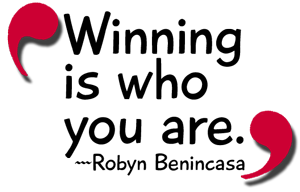
It’s an important life skill.
We are all very much in our own heads most of the day, working out problems, working on goals, on a mission…so when we interact with others on our day’s journey, it’s important to realize that the other person may have a completely different goal, agenda, recent experience from where they are approaching the situation.
The Job of a Manager is to Create other Leaders
A manager is a facilitator of their teammates’ success. That is a constant. The manager on a team never changes. But a great manager will allow different leaders on the team to emerge based on their strengths and what they can bring to the table. Leaders on great teams change constantly—it builds ownership and an entrepreneurial spirit, which are two very strong motivators that inspire a whatever it takes mentality when it comes to goals. Great managers don’t hold the leadership role with an iron fist or feel threatened if someone else is leading.
Accept and Embrace Adversity as a Chance to Learn and Excel
“Your racing career is over. You’re never going to run again” were the words from my orthopedic surgeon at age 40, after over 10 years of winning extreme global races. Recovering again after 2 hip replacements twice, I realized one of my favorite parts of adventure racing was the paddling competition. Which led to my 2 Guinness world records in kayak paddling (lake and river) and my new goal for a third in open water (ocean) in September 2012.
See Challenges versus Roadblocks
The most important things is to start with the right mindset and attitude. Reassuring and encouraging others is what world class team builders do.
Utilize Life Skills in Other Platforms
Recovering from hip surgery #1, the idea came to me to establish the Project Athena Foundation. Project Athena is a 501c3 non-profit that helps cancer survivors live an adventurous dream as part of their recovery. Today, by raising funds and heading the expeditions, I help survivors trek across the Grand Canyon or run their first half marathon. This kind of success allows these courageous women to amaze and inspire themSELVES again and face life challenges head on.
Most Important Leadership Skill
When to inspire, when to instill tough love, when to coach, when to lay down the law, when to get out front and show your team the way, or when to let them lead…and even when to cut bait.
Follow Your Passion and Make it a Reality
This is not a cliche. Being one of a handful of female firefighters allows me to be all of the things I love the most–an athlete, a rescuer, an emergency medical first responder, a teammate, and an adventurer. It’s never the same day twice!
July 11, 2012
She’s Doing It: Jane Roberts’ 10 Years Making Global Women’s Rights Reality
This is a guest post by a courageous leader for women globally. Jane Roberts saw an injustice and took action to set things right. On this July 11, World Population Day, join me in support of her efforts to raise awareness and money to ensure that women around the world can have healthy pregnancies when they choose and access to preventive family planning services to plan and space their childbearing.
Also on 11 July, the UK Government and the Bill & Melinda Gates Foundation, with UNFPA and other partners, will host the London Summit on Family Planning, a groundbreaking convocation on family planning. The aim of the summit it to mobilize global policy, financing, commodity, political will, and service delivery commitments to support the rights of an additional 120 million women and girls in the world’s poorest countries to use contraceptive information, services and supplies, without coercion or discrimination, by 2020.
July 22, 2002, ten years ago this month, I read in the Los Angeles Times Colin Powell’s announcement that the United States of America, my country, was not going to release the $34 million Congress had approved for the U.N. Population Fund. Powell, a proponent of UNFPA, sold his soul.
I knew that this dereliction of duty and this ugly mean spirited step would mean more cases of maternal mortality, more unwanted births, large numbers of unsafe abortions, increased cases of obstetric fistula and increases in the myriad forms of gender based violence. That night I thought of asking 34 million Americans and others for one dollar. Lois Abraham, whom I didn’t know at the time, had the exact same thought. Ten years later our grassroots movement 34 Million Friends is still going and has given hundreds of thousands of people the opportunity to take a stand for the women of the world through UNFPA. Our web site at www.34millionfriends.org has a new 10th anniversary home page with my new and short youtube video.
July 11 is World Population Day. Two hundred thirteen thousand people per day and/or seventy-eight million people per year are being added to the world’s population. Human beings are a rapacious species. Rio+20 showed that governments will not sacrifice their power nor individuals their creature comforts for long term sustainability. Rio+20 showed that population remains the unmentioned elephant in the room. Sustainability is a joke.
Rio+20 showed that women remain at the low end of the totem pole and that the lip service paid to the centrality of women to both development and sustainability issues is just that: lip service.
I predict that the family planning summit in London to coincide with World Population Day will, in the long run, be more important than Rio+20. It is being sponsored by DFID, Department for Foreign and International Development (UK), the Bill and Melinda Gates Foundation with additional support from UNFPA and USAID.
Dr. Gary L. Darmstadt who heads the family health division at the Gates Foundation views the summit as an opportunity to unleash unprecedented political commitment to making access to family planning pass from a right to a reality.
Dr. Babtunde Osotimehin has stated that UNFPA will increase its allocation to family planning from 25 percent to 40 percent. That is a huge positive step. Family planning is at the very core of all that reproductive health entails.
And what about you? 34 Million Friends would welcome a 10th anniversary gift and/or give the gift of family planning directly at the UNFPA web site. Family planning is central to women’s health and to women’s equality. It is too important to leave to governments alone. It is the most noble of causes going forward for people, the planet and peace.
July 2, 2012
Is 2012 the Breakthrough Moment f or Women Leaders?
After a week in which women debated Anne-Marie Slaughter’s contention about Why Women Still Can’t Have It All, a wave of powerful articles challenging Slaughter are finally appearing. Dana Theus says that women who are at or as near the top as Facebook COO (and its latest board member) Sheryl Sandberg and Slaughter need to woman up and “own this power they have to choose how to spend their energy, and talk about it in powerful ways that honor people’s choices, then we’ll begin to build a culture that honors, supports and encourages the ‘balance of powers‘ needed at the top.”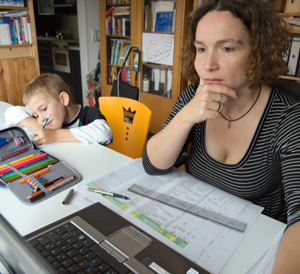
And Gayle Tzemach Lemmon says we should be teaching girls they CAN have it all—even if they can’t.
I believe that following Theus’s and Lemmon’s advice would change everything. And more importantly, this is the moment to do so.
It’s the moment when women can lead and live without limits.
Why am I so confident?
Because I’ve seen women make stunning progress—helped make some of them happen, in fact—so I know breakthroughs can happen. But they don’t ‘just’ happen. And this auspicious moment won’t last forever unless women ourselves commit to make it so.
Will women make the breakthrough moment when gender parity in leadership becomes normative—or will we continue on current trajectory? Signs point both ways.
Discriminatory laws have been mostly eliminated.
Women earn 60 percent of college degrees and make up half the workplace.
Many glass ceilings are smashed.
Many men too think it’s women’s moment. In his foreword to Enlightened Power: How Women are Transforming the Practice of Leadership, David Gergen wrote: “Think of all the words we use to describe old style leadership: aggressive, assertive, autocratic, muscular, closed. When we describe the new leadership, we employ terms like consensual, relational, web-based, caring, inclusive, open, transparent—all qualities that we associate with the feminine style of leadership.”
The business case for recruiting and retaining high performing women leaders is unassailable: when women are included, the quality of decision-making improves and companies make more money. Sustained gender diversity in the boardroom correlates with better corporate performance.
Yet women have been stuck for years at 18 percent of leadership positions across 10 sectors. Women are no further along the corporate ladder than they were six years ago! Why? No, it’s not only because women are still regarded as the family caregivers; increasingly, men are sharing those tasks and yet insidious cultural barriers and implicit biases remain.
Still, no law or formal barrier is keeping women from attaining top leadership roles, and no one will walk us through the doors to leadership except ourselves.
My intent isn’t to blame, but to inspire women and give practical power tools to leverage this breakthrough moment. When women run for office, they are elected in the same percentages as men. But they are only half as likely even to think about running. And when they consider it, they wait longer than men to take the plunge.
This same dynamic occurs in work, politics, and personal relationships. You can’t win if you don’t run, and you can’t get into the C-suite if you don’t put yourself forward for the position. Paradoxically, I’ve spent most of my career working for power for others. This is gendered behavior regarded (and rewarded) as laudable—being nice, putting the needs of others first, self-sacrificing, not caring about such male prerogatives as earning a high income or having a power title.
It’s hard to change a culture while you’re living in it. And women who assume power positions by adopting male models of power and leadership and fail to bring other women along or help change the culture don’t advance the cause of equality.
Thinking Differently About Power
Many women express reluctance to take on power positions (and even avoid programs with the word power in the title), feeling power suggests dominance. Few women love power. Since women have borne the brunt of abusive power-over, many women eschew power even when they have it.
Women need to define power in terms that work for them. Once they define power as the power to accomplish something for others, or for the good of us all, women are more willing to use their power. The use of power is legitimated, taken out of the realm of the power-over realm.
When I propose this definition to women, I see tension relieved. Power-to makes one powerful. Power-over is passé; power-to is leadership.
Kim Campbell, first female prime minister of Canada, said: “Power exists. Somebody will have it. If you would exercise it ethically, why not you? I love power. I’m power-hungry because when I have power I can make things happen.”
By defining power not as power-over but as power-to, we shift from a culture of oppression to a culture of positive intention to make things better for everyone.
The breakthrough comes when negative connotations about power give way to a vision of a world where women are equal opportunity leaders and doers, and where both genders can lead with integrity.
June 29, 2012
In Which I Reveal a Painful Salary (non) Negotiation Truth
Census Bureau statistics cite that women on average earn about 77 cents for every dollar earned by men. Recently, the Senate GOP blocked the Paycheck Fairness Act, introduced by Democrats to the senate floor.
This promising legislation would have bolstered the Lilly Ledbetter Fair Pay Act, barring employers from retaliating against workers who inquire about pay disparities.
What can we as individual women do proactively to create a work life for ourselves in which we don’t have to resort to investigating discrimination by our employers?
In this interview, Gloria encourages women to define their own terms: at meetings, “Say the first word, say the last word and establish yourself as an authority.”
Meg McSherry Breslin: For women who feel frustrated and unable to move up in their companies, what are some concrete things they can do?
Gloria Feldt: You may notice when you’re in a meeting how rare it is for a woman to be the first one to speak. One of the tools we need is to have intentional thoughts about what we’re going to put forward when we go to a meeting, and to say it! Say the first word, say the last word and establish yourself as an authority.
Secondly, women can really benefit from learning more negotiating skills — how to put ourselves forward for the raise and for the advanced position. Men toot their own horn even when they don’t have a horn to toot. … As somebody who hired people over a period of 30 years, what was always most important to me was that somebody knew their own value and was able to say in a very businesslike, straightforward way what they could do for an organization.
McSherry Breslin: What were some of the mistakes you made in the workforce?
Gloria Feldt: When I was going through the interview process for a job as executive director of Planned Parenthood in Arizona, the salary offered to me was larger than the salary I was making at the time, so I never even bothered to ask for more. After I accepted the offer, I found out the first offer had been made to a male candidate. He had declined it, only after he had negotiated it up by 25 percent (and still said that wasn’t enough). And of course, every other compensation I got afterward built on top of the lower amount I received.
McSherry Breslin: Do you see some of these dynamics changing in the near future?
Gloria Feldt: There are some women coming up who are absolutely fearless and have no problem embracing their power and saying, “I want to be CEO.” What I’m looking for now is the first woman who can create something that changes how we live, like Bill Gates did. If we can find that woman who can shift our thinking in a profound way, then I think we’re really getting there.
Writer Meg McSherry Breslin interviewed Gloria for this interview. The article originally appeared as a blog post on Crain’s Chicago Business’ website.
June 27, 2012
She’s Doing It: Dorothy Seymour Mills Finds Her Voice–and Uses It!
Earlier this year, I reviewed Dorothy Seymour Mills book, First in the Field, a book that offers readers insight into the history behind gender-based affirmative action policies that are now implemented in many institutions.
Today, Mills returns to 9 Ways to discuss her new book. A work of fiction, Drawing Card is steeped in Mill’s trademark historical-fact-made-relevant-today.
According to Amazon reviewer Joan M. Thomas, “Mills’ extensive knowledge of history and ethnic cultures makes the fast paced story all the more real. Moreover, while the events occur during earlier times, inequities that persist today become crystal clear.”
Today’s guest blogger, Dorothy Seymour Mills, is the personification of what it means to embrace Power tool #1, Know Your History.
In researching women’s baseball history, I discovered that at least two female baseball players had been signed to minor-league contracts but didn’t play. That’s because the Commissioner of Baseball, Kenesaw M. Landis, canceled their contracts as soon as he learned that they were women. Landis scoffed at the idea that women could play baseball, just as some baseball men do today.
Apparently, the minor-league managers who had signed these two women to contracts failed to fight for them. Behaving as women were supposed to behave, they went home quietly and found some other athletic endeavor to engage in.
I began to wonder what would have happened if these two women had refused to accept their rejection on the basis of gender. What if they had made some kind of fuss about it? I realized that I had the theme for an intriguing historical novel.
 Annie Cardello, the main character of my new novel, Drawing Card, just published by McFarland, pitches for a Cleveland women’s team in the 1930s. When a scout signs her to an International League contract, she happily travels to Albany. But as soon as Landis discovers a woman’s name on a contract, he cancels it. Annie goes back home, but she does not forget the slight she has suffered. She lets her resentment fester within her until she finally decides to act.
Annie Cardello, the main character of my new novel, Drawing Card, just published by McFarland, pitches for a Cleveland women’s team in the 1930s. When a scout signs her to an International League contract, she happily travels to Albany. But as soon as Landis discovers a woman’s name on a contract, he cancels it. Annie goes back home, but she does not forget the slight she has suffered. She lets her resentment fester within her until she finally decides to act.
Making Annie into a daughter of Sicilian immigrants gives me the opportunity, through flashbacks, to show her as the descendant of feisty Sicilians resentful of the constant invasions by the Greeks and others. It also enables me to show that throughout history, athletic women’s aspirations have constantly been blocked. Why is that important? Because it’s still happening today. Many baseball men have no idea that women have a real history in baseball, with each generation turning up some very good players. Today’s female baseball players (and umpires) have a tough time getting the respect they deserve.
Now I’m under contract to write a history of women’s baseball for young people, who all know about Babe Ruth but not Babe Didrickson. They’ve heard of Jackie Robinson but not Jackie Mitchell. It’s about time they found out that women have some baseball heroes of their own.
June 26, 2012
Think Women Can’t Have It All? She Means Business Aims for More
There’s big buzz about Anne-Marie Slaughter’s article in The Atlantic rehashing the tired trope that women “can’t have it all.”
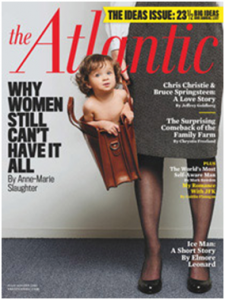 Personally, I think, most people, male and female, would love to have this high-powered woman’s problems (She was the first female director of policy planning at the U. S. State Department and is currently a Princeton University professor, author, and public speaker with a professor husband who shares child raising responsibilities).
Personally, I think, most people, male and female, would love to have this high-powered woman’s problems (She was the first female director of policy planning at the U. S. State Department and is currently a Princeton University professor, author, and public speaker with a professor husband who shares child raising responsibilities).
All of life is about making choices. Everyone struggles. So I wish Slaughter, and others who lay the responsibility on women for difficulties we didn’t create, would quit whining already and tackle the real problems like pay inequity, implicit gender biases, and the need for structural change in the workplace so everyone can have a life and earn a living.
That’s why I’m impressed with an extraordinary group of women venture investors and entrepreneurs at She Means Business. They’ve launched a new campaign that when funded will do far more to create new solutions than Slaughter’s public angst about her personal life choices.
The She Means Business Kickstarter site, seeking to raise $200,000 by July 10 in order to produce a documentary to inspire greater investment in women-created businesses, describes what She Means Business aims to do:
Women Entrepreneurs are trailblazers. We create businesses…and the jobs, salaries, economic growth, and futures that follow have a powerful but little-known impact. As entrepreneurs ourselves, we are amazed at how rarely the media tells the incredible stories of women braving new frontiers, succeeding (and sometimes failing), and building legacies. We want to bring some of these astounding journeys to the screen.
SHE MEANS BUSINESS is a documentary about women entrepreneurs. We will show authentic, human stories of brave businesswomen to the world so everyone can see just what these wonder women do despite the challenges they face.
Jackie Baptist serves as She Means Business executive producer. She views the film as an important opportunity to drive change: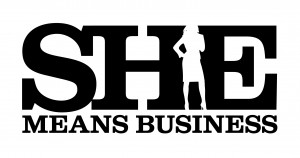
“In all honestly,” says Baptist, “when this project begun we did not realize the timeliness of our efforts…. And women are a large part of this movement.”
According to the Center for Women’s Business Research, women-owned businesses account for approximately 40% of all privately-held business in the USA, employ more than 13 million people and generated $1.9 trillion USD in sales in 2008.
To be sure, working at the State Department, as Slaughter did, is not the same as starting an entrepreneurial business in which the founder has greater control over structuring her work.
And many women say they start their own businesses in order to circumvent rather than try to change the corporate world’s lack of flexibility—so well described by international talent management strategist Dorothy Dalton who observes that the current corporate models based on nuclear families with one partner focusing on childcare while the other brings home the money is simply no longer functional.
Still, much of the entrepreneurial experience can be profitably applied to ameliorating the problems that Slaughter describes, and more importantly to disrupting the “norm” in workplace design, allowing for new modalities to emerge.
Sonja Hoel Perkins is a venture investor currently starting a new fund, Broadway Angels, to back women in information technology. She’s an unpaid advisor to She Means Business, contributing her time because she likes the positive message and wants to inspire women and girls to realize they can become successful entrepreneurs.
The photo atop Menlo Ventures’ partner biographies page is striking. Hoel Perkins’ face pops out as the only women in striking contrast to the firm’s other eight partners.
Yet Hoel Perkins, who joined Menlo Ventures in 1994, says she didn’t join women’s groups because she didn’t want to call attention to herself as a woman. And she thought she didn’t experience discrimination. But after her child was born, she realized how challenging it was being a working mother in the existing workplace structure.
Now she says, “There should be more talk about what businesses can do to maximize the potential of their women employees rather than focusing on what women should do to work better in a man’s world.” She urges new models like the results oriented workplace, where rewards are based on achieving tasks. “It is to the advantage of businesses to figure out how to keep their top performer engaged when she’s had twins.”
Women shouldn’t have to feel guilty about wanting to meet your responsibilities as a parent and partner, observes Hoel Perkins. “The flexible workforce has to include men as well as women and that will change the way work is done.“
She Means Business is already capturing attention from investors and the media, according to ForbesWoman.com contributor Kathy Caprino.
Stewarded by top advisors including Hoel Perkins, Jeanne Sullivan of Starvest Partners, Judy Robinett of Illuminate Ventures and Grow America, Joy Marcus of Draper Fisher Jurvetson, Janet Hanson, CEO of 85 Broads and successful entrepreneurs and filmmakers Jacqueline Baptist and Elizabeth Dell, respectively, She Means Business has already garnered attention from leading movers and shakers in the world of entrepreneurial women, and various large media outlets.
It counts among its supporters Tim Draper, Draper Fisher Jurvetson, Paul Holland, Foundation Capital, Monica Smiley, Publisher/CEO of Enterprising Women, Marsha Firestone, Founder and President of Women Presidents’ Organization and many others.
Baptist says the realization that many women who want to start businesses lack role models or mentors got her interested in the project. “Figuring out how we would help the current generation of women entrepreneurs and inspire the future generation as well had to be something with a lasting impact beyond the summits, networking events and blogs, something that would have tremendous reach.” She believes getting the message out through women’s lived experiences in the documentary can change things dramatically for the better, resulting in greater investment in women-owned entrepreneurial businesses.
Journalist Rebecca Traister, writing for Salon.com, contends that the phrase “have it all” should be excised from the feminist lexicon…The notion that female achievement should be measured by women’s ability to ‘have it all’ recasts a righteous struggle for greater political, economic, social, sexual and political parity as a piggy and acquisitive project.”
She Means Business is in its way doing just that, rewriting the workplace narrative for women and men while creating businesses that grow the economy and enrich all our lives.
Follow @shemeansbusiness to stay up to date on their work.
Make your pledge and become part of the movement by going to their Kickstarter campaign page.
Watch these women define their own terms for how they want their lives to be and how they will accomplish what they want to do. And isn’t that an apt definition of “having it all?”
This article was originally published in ForbesWoman. View it here.
About Gloria Feldt:
Gloria Feldt is the author of No Excuses: 9 Ways Women Can Change How We Think About Power. Interested in learning more tips and power tools that have worked for other women? Buy the book here. Engage Gloria for a Speech or Workshop here. Tweet @GloriaFeldt and connect on Facebook, LinkedIn, and Google

